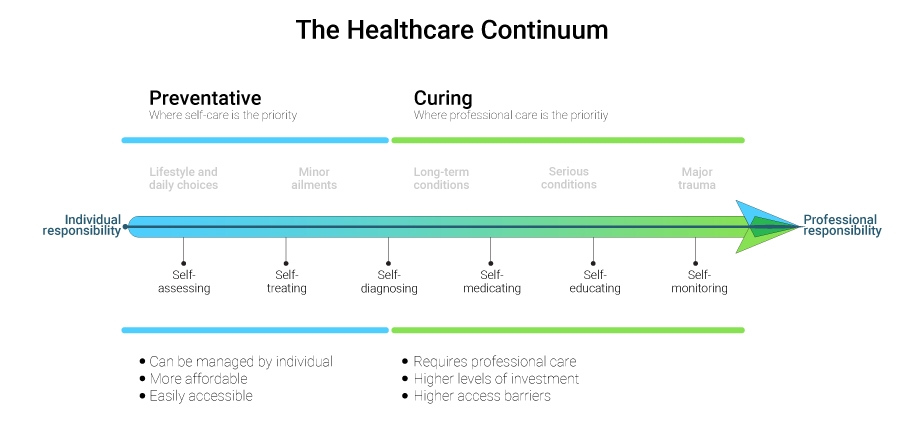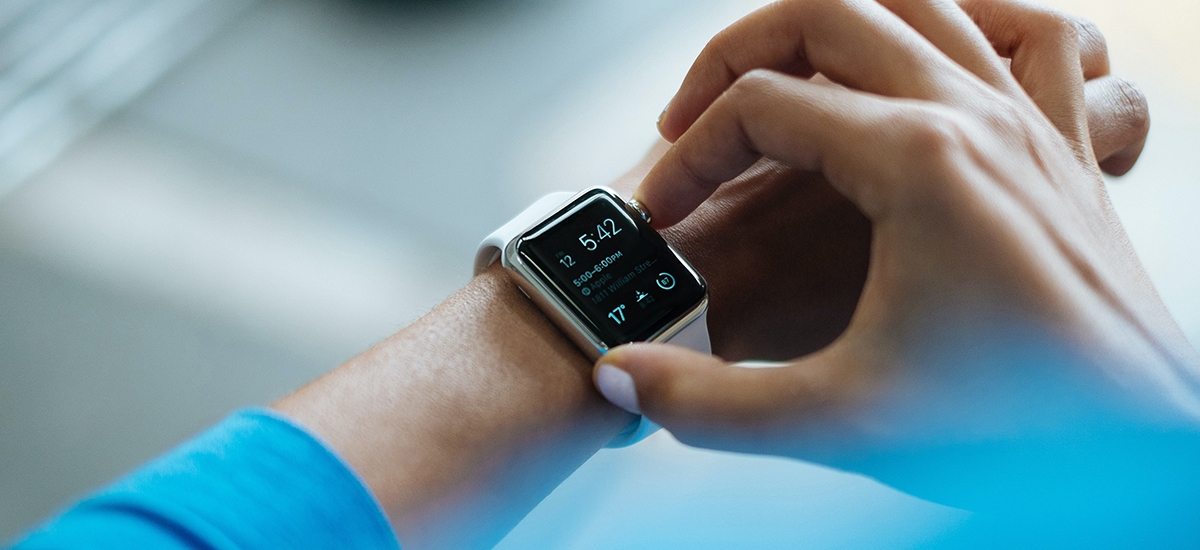The Age of Self-Care: A Post-Pandemic Investment Opportunity
The Covid crisis has brought personal health into sharp focus for billions of people worldwide, driving momentum across the preventive healthcare space.
There’s no denying that health has been the major topic of conversation across the world for the larger part of the last two years. The pandemic has placed enormous pressure on global healthcare systems, many of which were already struggling to keep up with demand before 2020. Crucially, it has also crystallized the importance of robust health and immunity for individuals.
A New Hope Network survey carried out in the early weeks of the pandemic showed that 77% of respondents said their personal health was more important to them than it had been in 2019.
While there’s hope in some parts of the world that the most acute moments of the crisis are behind us, the fundamental structure of many healthcare systems remains unsustainable. Worldwide, healthcare costs as a percentage of national GDP are rising, according to World Bank data—and in the U.S., healthcare spending represented almost 17% of GDP in 2019. As for individuals’ focus on their own personal health, Bloomberg Intelligence Analyst Diana Rosero-Pena predicts that the increased sense of personal responsibility is here to stay.
“The pandemic made a lot of people think about how they’re treating their bodies, which is why there’s a good tailwind for the self-care segment as we go forward,” she says.
Self-care—defined by the World Health Organization (WHO) as “the ability of individuals, families and communities to promote health, prevent disease, maintain health and cope with illness and disability with or without the support of a healthcare provider”—empowers people to take both proactive and reactive steps to protect their own health and well-being, using everything from nasal sprays to treat an allergy to supplements that help ensure the right intake of nutrients.
“For too long, we have thought about healthcare as what happens in a doctor’s office or a hospital,” says Heiko Schipper, Chair of the Global Self-Care Federation and President of the Consumer Health division of Bayer. “But it starts long before that, from leading a healthy lifestyle to taking the right actions to manage and treat your own health.”

The healthcare continuum
In the wake of the pandemic, the need to consider the performance and long-term sustainability of such systems is more apparent than ever. Scaling healthier lifestyles and personal health practices into broader healthcare strategies is essential to designing more healthcare systems that are built to last.

In late 2020, leading economies including the U.K., the U.S. and France ranked poorly in the Bloomberg Health-Efficiency Index, which tracks life expectancy and medical spending to determine which global healthcare systems have the best outcomes.
Research by the Consumer Healthcare Products Association found that every dollar spent on over-the-counter (OTC) medicines saves the U.S. healthcare system $7—suggesting that if the global population were more proactive about self-care, it could save billions.
These data points indicate that practicing better science-based personal health holds untapped potential for healthcare systems, both in terms of economic value for national budgets and health outcomes for individuals.
Documenting that potential is one of the core objectives of the The Self-Care Readiness Index (SCRI). Launched in September by the Global Self-Care Federation in partnership with the World Health Organization, the SCRI found that the majority of healthcare providers globally say personal health practices are a vital tool in supporting patients. They cited improved health outcomes when patients can safely use appropriate OTC products as first-line treatments for minor ailments. In Thailand, for example, where household remedies and OTC medicines are widely used, 99% of healthcare professionals said self-care is a “core component” of their approach to patient management.

Opportunities within self-care
With the emergence of apps and digital platforms in the health-tech space, individuals have more opportunities than ever before to take ownership of their health. Further, digital technologies have powered the potential of breakthroughs like precision health, which enables more individualized health treatment. Digital advancements have also led to big strides in the accuracy and efficiency of healthcare.
Bayer has responded to these trends by investing in this growing space; it recently invested in Ada Health, whose app platform harnesses AI technology to empower users to diagnose their health status, track their symptoms and monitor changes in their health. In 2020, Bayer acquired a majority stake in Care/of, a startup that delivers personalized health analysis and an individualized supplement regimen to consumers at home.
Recent research indicates that the global vitamin and supplement market is likely to expand at a compound annual growth rate of 8.6% between now and 2028. For Bayer, it’s projections like these that confirm the potential of self-care as an investment opportunity.
“The increasing importance of better personal health makes science-based self-care an attractive investment,” says Schipper. “Beyond its potential return, investing in self-care relieves strained healthcare systems and helps create a more sustainable model for the future.”
For Bayer, developing self-care is central to the company’s purpose: science for a better life. Particularly in the digital space, new scientific disciplines like individualized health monitoring point to the potential to transform care across the healthcare continuum, no matter if someone is managing their nutrient intake or managing a more serious condition like diabetes.
“With our Pharmaceuticals and Consumer Health divisions, we harness the power of digital to improve the way healthcare is practiced, with science-based technologies that put the health of patients and consumers at their center,” said Schipper.
Beyond an investment strategy, this purpose comes with a responsibility to the global population. Particularly in areas where access to healthcare is limited, self-care is a lifeline. At the start of this year, the company launched The Nutrient Gap Initiative with the goal of giving underserved communities access to vitamins and minerals. The consequences of vitamin and mineral deficiencies worsen over time, not only impacting individual health outcomes, but also exacerbating the cycle of poverty. The program aims to reach 50 million people per year by 2030—empowering them to take better ownership of their health, and alleviating pressure on local services.
“As the past year and a half has shown us, personal health is a critical topic with global consequences,” says Schipper. “The Nutrient Gap Initiative is a great example of the promise of self-care. Over time, improving health at the individual level can significantly improve the health of the world.”
